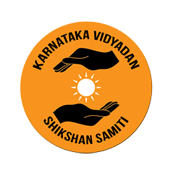About
- Home
- About
JUDGEMENT OF HON’BLE SUPREME COURT The Board/Council trustees/members has the constitutional right under Article 19 (1) (g) to pursue any profession or any occupation and running teaching institutes have been included as part of occupation as held by Hon’ble Supreme Court in T.M.A. Pai Foundation Vs. State of Karnataka (SC) 2003 (2) SCT 385. The relevant portion of the above
said judgment is reproduced as under:- “Private education is one of the most dynamic and fastest growing segments of post-secondary education at the turn of the twenty –first century. A combination of
unprecedented demand for access to higher education and the inability or unwillingness of government to provide the necessary support has brought private higher education to the forefront.
Private institutions with a long history in many countries, are expanding in scope and number, and are becoming increasingly important in parts of the world that relied almost entirely on the public sector.
FUNDAMENTAL RIGHT AND REASONABLE RESTRICTION UNDER CONSTITUTION OF INDIA The only reasonable restriction on the exercise of this right can be imposed under Article 19 (1) (g) and is imposed in clause 19 (6). The only restriction is that State can make the law imposing reasonable restriction in the interest of general public or any restriction regarding profession and technical qualification necessary for practicing any profession or occupation, trade or business. Since so far no such professional or technical qualification have been notified, therefore, the trustees/members of the Board/Council through their Society have a fundamental right to carry on the profession / occupation of running the Institutes which imparts education.
NO OBJECTION TO GOVT. ON THE NAME OF COUNCIL We want to also clarify that some states an objection has been pointed out to the name of the Board/Council in private sector but later all such objections have been resolved after the Board/Council pointed out that the world “Board” / “Council” is not reserved by any statute that it cannot be used by any other trust.
Many boards/Councils had applied to the Registration Authority and they have approved of the name of Board /Council.
If there would have been any objection to its name or this name is not permitted by law then the Registrar would not had registered it.
OTHER PRIVATE BOARDS/BODIES AND PRESS NEWS ABOUT PRIVATE BOARD Other Parallel Private bodies/Boards and Councils: Bhartiya Shiksha Parishad (www.bspuplko.org) Council of Secondary Education Mohali (www.csemohali.org) Board of Higher Secondary Education, Delhi (Banga) (www.bhse.co.in) Board of School and Technical Education (C.G.) (www.bstecg.edu.in) Rural institute of Open Schooling (www.rios.ac.in) and many Private Boards are running in India. Private board’s are not illegal: Says Court (From Hindustan Newspaper 09-09-2004)
HON’BLE SUPREME COURT ORDER IN THE FAVOUR OF PRIVATE BOARDS Dated 12-07-2013, Hon’ble Supreme Court of India gives order in the favour of A Private Board about the admissions
of pass out candidates. Hon’ble Supreme Court’s Judgment: AIR 1993 SC-2178. Hon’ble High Court’s Lucknow Bench, Stay Order No. 744/91 Hon’ble Supreme Court Writ Petition 676/2014 by a Private Board
MINISTRY OF HUMAN RESOURSES DEVELOPMENT CLEARENCE REGARDING EDUCATIONAL BOARDS MHRD issued a letter dated 25-10-2012; in it MHRD said clearly “It is informed that Ministry of Human Resource Development does not give recognition to education boards.
It is also informed that Ministry of HRD does not regulate the setting up of educational boards.” Letter issued by
Dep. Secretary of the CBSE NEW DELHI Letter issued by Dep. Secretary of the CBSE NEW DELHI (DATED: 03-01-2012 VIDE REF. NO. COORD/RTI/5157/2011/23-24): in it clearly said “A registered Society is
eligible to issue certificates to the qualified candidates.
PARALLEL BODIES, HUMAN RIGHT PROTECTION ACT It is also pertinent to mention here that one of the prominent and well known Boards providing Secondary
and Senior Secondary Examinations for the students all over the country is the Council for Indian School Certificate Examinations (CISCE), which is a registered society.
So is the CBSE which stands for Central Board of secondary Education. Under HUMAN RIGHTS PROTECTION ACT, 1993 autonomous bodies have been given special protection & consideration.
For further details refer: AIR 1993 SC-2178.
NOTE: KARNATAKA VIDYADAN SHIKSHAN SAMITIIS AN LEGAL SELF AUTONOMOUS PRIVATE BODY ACCORDING TO ABOVE NOTICE.
